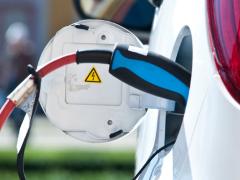Hydropower dependency and climate change in sub-Saharan Africa: A nexus framework and evidence-based review
In sub-Saharan Africa, 160 million grid-connected electricity consumers live in countries where hydropower accounts for over 50% of total power supply. A warmer climate with more frequent and intense extremes could result in supply reliability issues. Here, (i) a robust framework to highlight the interdependencies between hydropower, water availability, and climate change is proposed, (ii) the state-of-the art literature on the projected impacts of climate change on hydropower in sub-Saharan Africa is reviewed, and (iii) supporting evidence on past trends and current pathways of power mix diversification, drought incidence, and climate change projections is provided.
We find that only few countries have pursued a diversification strategy away from hydropower over the last three decades, while others' expansion plans will reinforce the dependency. This will occur irrespective of the fact that some of the largest river basins have experienced a significant drying during the last century. Agreement is found on likely positive impacts of climate change on East Africa's hydropower potential, negative impacts in West and Southern Africa, and substantial uncertainty in Central Africa.
Irrespective of the absolute change in gross technical potential, more frequent and intense extremes are projected. One possible paradigm to increase resilience and fulfil the pledges of the Paris Agreement is a synergetic planning and management of hydropower and variable renewables.
This article is available on the publisher’s website via restricted access.
Authors
Specifications
- Publication title
- Hydropower dependency and climate change in sub-Saharan Africa: A nexus framework and evidence-based review
- Publication date
- 28 May 2019
- Publication type
- Publication
- Magazine
- Journal of Cleaner Production
- Product number
- 3767




